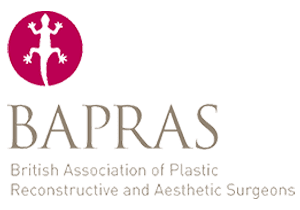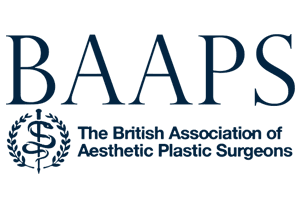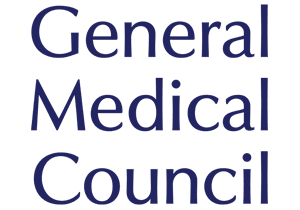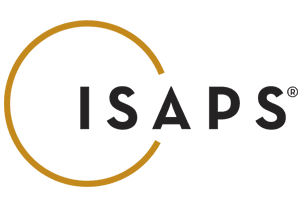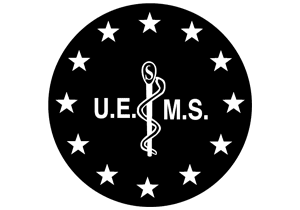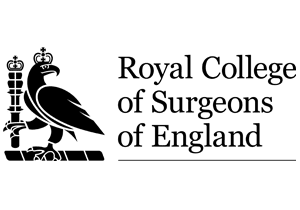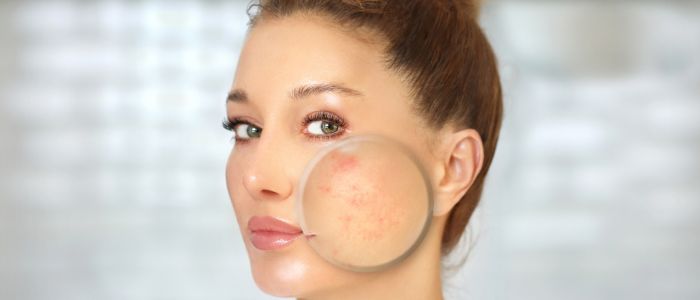
Causes and Solutions for Acne and Rosacea
Acne and rosacea are common skin conditions that can significantly impact your appearance. Acne, characterised by pimples, blackheads, and cysts, primarily affects teenagers but can persist into adulthood. Rosacea, often mistaken for acne, presents as redness, visible blood vessels, and sometimes pus-filled bumps on the face. Although they may seem similar, acne and rosacea are distinct conditions requiring different treatment approaches.
Causes and Risk Factors
Acne is primarily caused by the overproduction of oil (sebum), clogged pores, bacteria, and inflammation. Hormonal changes during puberty, stress, and certain medications can exacerbate acne. Rosacea, on the other hand, is believed to be triggered by a combination of genetic and environmental factors. Common triggers include sun exposure, spicy foods, alcohol, and stress. Both conditions can be influenced by genetic predisposition, meaning if your family has a history of acne or rosacea, you may be more likely to develop these conditions.
Symptoms and Diagnosis
Acne symptoms range from mild blackheads and whiteheads to severe cysts and nodules. The condition typically appears on the face, back, and chest. Rosacea, meanwhile, is characterised by facial redness, visible blood vessels, and in some cases, swollen bumps resembling acne. Unlike acne, rosacea often affects the central face, including the cheeks and nose. Your dermatologist diagnoses these conditions through a physical examination and, if necessary, by reviewing your medical history. Early diagnosis is essential to prevent complications and to tailor an effective treatment plan.
Types of Acne and Rosacea
Acne can be categorised into several types:
- comedonal acne (blackheads and whiteheads)
- inflammatory acne (pimples and pustules)
- cystic acne (deep, painful cysts)
- nodular acne (large, hard bumps)
Each type requires a different treatment approach.
Rosacea also has four main subtypes:
- erythematotelangiectatic rosacea (facial redness)
- papulopustular rosacea (acne-like breakouts)
- phymatous rosacea (thickened skin)
- ocular rosacea (eye irritation
Treatment Options for Acne and Rosacea
Medical Treatments Acne
When it comes to treating acne and rosacea, medical intervention is often necessary to control symptoms and prevent long-term skin damage. For acne, topical treatments are commonly prescribed as a first-line approach. These may include retinoids, which help to unclog pores and reduce inflammation, and benzoyl peroxide, which targets the bacteria responsible for acne. Topical antibiotics may also be used to reduce bacterial growth and inflammation.
For more severe cases, oral medications might be necessary. Oral antibiotics can be effective in reducing inflammation and bacterial presence in moderate to severe acne. In some cases, hormonal treatments like oral contraceptives or anti-androgens may be recommended for women, as these can regulate the hormones that contribute to acne development.
Medical Treatments Rosacea
Rosacea, on the other hand, requires a different treatment approach due to its distinct characteristics. Topical treatments for rosacea often include antibiotics and azelaic acid, both of which reduce inflammation and redness. Ivermectin cream is another option, particularly effective against the Demodex mites that are thought to exacerbate rosacea in some patients. For more persistent or severe rosacea, oral antibiotics may be prescribed, not necessarily for their antibacterial properties, but for their anti-inflammatory effects. In cases where facial redness and visible blood vessels are prominent, laser therapy or intense pulsed light (IPL) treatments can be used to reduce redness and improve the appearance of the skin. These treatments target the dilated blood vessels under the skin, leading to a reduction in redness over time.
Procedural Treatments for Acne and Rosacea
In addition to medications, procedural treatments can be highly effective for managing both acne and rosacea, especially in cases where topical and oral treatments alone are insufficient. For acne, chemical peels are commonly used to exfoliate the skin and unclog pores, which can help reduce the frequency and severity of breakouts. Salicylic acid peels, in particular, are effective for acne-prone skin due to their ability to penetrate and clean out clogged pores. Another option is light therapy, which uses blue or red light to target the bacteria that cause acne or to reduce inflammation, respectively. Photodynamic therapy, which involves applying a photosensitising agent to the skin followed by light exposure, can also be effective for severe acne by reducing oil production and killing bacteria.
Rosacea patients may benefit from laser treatments, such as pulsed dye lasers or IPL, which can reduce redness and the appearance of blood vessels. These procedures work by targeting the haemoglobin in the blood vessels, causing them to shrink and become less visible. In more advanced cases of phymatous rosacea, where the skin becomes thickened and bumpy, surgical options such as dermabrasion, laser resurfacing, or electrosurgery may be necessary to reshape and smooth the skin. These procedures should be performed by a dermatologist or a plastic surgeon with expertise in treating rosacea.
Lifestyle and Home Care for Acne and Rosacea
Effective management of acne and rosacea extends beyond medical and procedural treatments; lifestyle and home care play an important role in controlling these conditions.
For acne, maintaining a consistent skincare routine is essential. This typically includes gentle cleansing twice a day with a non-comedogenic cleanser, followed by the application of a suitable topical treatment prescribed by a dermatologist. It’s important to avoid harsh scrubs or over-cleansing, as these can irritate the skin and exacerbate acne. Additionally, using non-comedogenic moisturisers and sunscreens can help protect the skin without clogging pores. Diet also plays a role in managing acne, with some evidence suggesting that high-glycaemic foods and dairy products may worsen acne for some individuals. Adopting a balanced diet rich in fruits, vegetables, and whole grains, and drinking plenty of water, can support overall skin health.
For rosacea, identifying and avoiding triggers is key to managing flare-ups. Common triggers include sun exposure, spicy foods, alcohol, stress, and extreme temperatures. Keeping a diary to track flare-ups can help identify personal triggers, which can then be avoided. A gentle skincare routine is also important for rosacea patients. Using mild, fragrance-free cleansers and moisturisers, along with broad-spectrum sunscreen, can protect the skin and reduce irritation. It’s also advisable to avoid products containing alcohol, menthol, or other potentially irritating ingredients. In addition, managing stress through techniques such as meditation, yoga, or regular exercise can help reduce the frequency and severity of rosacea flare-ups.
Alternative and Complementary Treatments for Acne and Rosacea
Alternative solutions for acne and rosacea can be recommended either in conjunction with conventional therapies or as standalone options. For acne, natural remedies such as tea tree oil, which has antimicrobial properties, or green tea extract, known for its anti-inflammatory effects, are sometimes used. However, it’s important to use these with caution, as natural does not always mean safe or effective, and some natural treatments can cause irritation or allergic reactions. Always consult a dermatologist before trying alternative treatments.
For rosacea, herbal remedies like licorice root extract or colloidal oatmeal, which have anti-inflammatory and soothing properties, are sometimes used. Additionally, supplements like omega-3 fatty acids, which have anti-inflammatory benefits, may help some patients manage rosacea symptoms.
Prevention Tips for Acne and Rosacea
Prevention Strategies
Preventing acne and rosacea requires a proactive approach that involves identifying and avoiding potential triggers, as well as adopting healthy skincare and lifestyle habits. For acne prevention, one of the most important strategies is to maintain a regular skincare routine that keeps the skin clean and free from excess oil and debris. Additionally, it’s important not to pick or squeeze acne lesions, as this can lead to scarring and further inflammation.
Diet can also play a role in acne prevention. While the relationship between diet and acne is not fully understood, some studies suggest that foods with a high glycaemic index, such as sugary snacks and refined carbohydrates, may worsen acne in some individuals. Limiting these foods and focusing on a balanced diet rich in fruits, vegetables, whole grains, and lean proteins may help reduce the risk of breakouts. Staying hydrated by drinking plenty of water can also support overall skin health and may help prevent clogged pores.
For rosacea prevention, identifying and avoiding triggers is key. Sun exposure is one of the most common triggers for rosacea flare-ups, so wearing a broad-spectrum sunscreen with an SPF of at least 30 every day, even in cloudy weather, is essential. Additionally, wearing a wide-brimmed hat and seeking shade when outdoors can provide extra protection. Temperature extremes, both hot and cold, can also trigger rosacea, so it’s important to protect the skin by avoiding hot showers, using gentle skincare products, and covering the face in cold weather. Reducing stress is another important preventive measure, as stress can trigger rosacea in many people. Regular exercise, adequate sleep, and relaxation techniques such as deep breathing, meditation, or yoga can help manage stress levels.
Regular dermatological check-ups are an important part of preventive care for both acne and rosacea, especially for people who have a history of these conditions.
FAQs about Acne and Rosacea Causes and Treatment
Can makeup make acne or rosacea worse?
- Yes, certain makeup products can exacerbate both acne and rosacea, especially if they are not formulated for sensitive or acne-prone skin. Oil-based or heavy foundations can clog pores, leading to more breakouts in acne-prone skin. For rosacea, makeup with harsh chemicals, fragrances, or alcohol can irritate the skin and trigger flare-ups. It’s recommended to use non-comedogenic, hypoallergenic, and fragrance-free products to minimise the risk of aggravating these conditions.
Is acne only a problem for teenagers, or can it affect adults too?
- While acne is most common during adolescence due to hormonal changes, many adults also experience it. Adult acne can be related to factors such as stress, hormonal imbalances, or the use of certain skincare or hair products. Adult women, in particular, may experience acne due to hormonal fluctuations related to menstruation, pregnancy, or menopause. Unlike teenage acne, adult acne often appears on the lower face, jawline, and neck.
Can diet influence acne and rosacea?
- Diet can play a role in both acne and rosacea, although the impact varies among individuals. For acne, diets high in refined sugars and dairy have been linked to increased breakouts in some people. For rosacea, certain foods and drinks, such as spicy foods, alcohol, and hot beverages, are common triggers for flare-ups. Keeping a food diary can help identify specific triggers and guide dietary choices to manage symptoms better.
How does stress affect acne and rosacea?
- Stress is a well-known trigger for both acne and rosacea. When you’re stressed, your body releases hormones such as cortisol, which can increase oil production and inflammation, leading to more acne breakouts. For rosacea, stress can cause the blood vessels in the face to dilate, resulting in increased redness and flare-ups. Managing stress through techniques such as regular exercise, meditation, or adequate sleep can help reduce the frequency and severity of both conditions.
Can over-the-counter treatments effectively manage acne and rosacea?
- Over-the-counter (OTC) treatments can be effective for mild cases of acne. However, for moderate to severe acne or rosacea, OTC treatments may not be sufficient, and a visit to a dermatologist is recommended for stronger prescription options. For rosacea, OTC products that are specifically formulated for sensitive skin might help, but many rosacea patients require prescription medications or treatments to manage their symptoms effectively.
Are there any long-term complications if acne or rosacea is left untreated?
- If left untreated, both acne and rosacea can lead to long-term complications. Acne can cause permanent scarring, dark spots (post-inflammatory hyperpigmentation), and persistent redness. Rosacea, if not managed properly, can progress and lead to more severe symptoms, including thickening of the skin.
When to See a Dermatologist for Acne and Rosacea
It’s important to know when to seek professional help for acne and rosacea, as early intervention can prevent long-term skin damage and improve outcomes. You should consider seeing Dr Dalia Alsaadi at Cheshire Cosmetic Surgery if your acne or rosacea is persistent, severe, or causing significant distress.
Signs that suggest it’s time to consult a dermatologist include painful, deep cysts or nodules, widespread breakouts that do not respond to over-the-counter treatments, or if your rosacea is accompanied by frequent flare-ups, visible blood vessels, or eye irritation. If you notice worsening symptoms or if these conditions are affecting your self-esteem or quality of life, professional advice is important.
Cheshire Cosmetic Surgery offers specialised care and can provide you with a tailored treatment plan to manage your symptoms effectively. Don’t wait for your symptoms to worsen—schedule a consultation with Dr Dalia today to explore your treatment options.
References for Acne and Rosacea
- Acne: more than skin deep – PMC
- Acne: Overview
- Rosacea Treatment: Review and Update – PMC
- Rosacea – StatPearls
- Acne Vulgaris: Practice Essentials, Background
Related Conditions
- Read more about Eczema and Psoriasis
- Read more about Rashes
- Read more about Pigmentary Disorders
- Read more about Hair Loss
- Read more about Lipoma Removal
 Dr Dalia obtained her medical degree from Queen Mary University – Barts and the London School of Medicine and Dentistry, graduating with a distinction and being awarded University of London Gold Medal in Medicine (Proxime Accessit) and the Glanfield Harris Best of Gold Medalists 2012-2013 award.
Dr Dalia obtained her medical degree from Queen Mary University – Barts and the London School of Medicine and Dentistry, graduating with a distinction and being awarded University of London Gold Medal in Medicine (Proxime Accessit) and the Glanfield Harris Best of Gold Medalists 2012-2013 award.